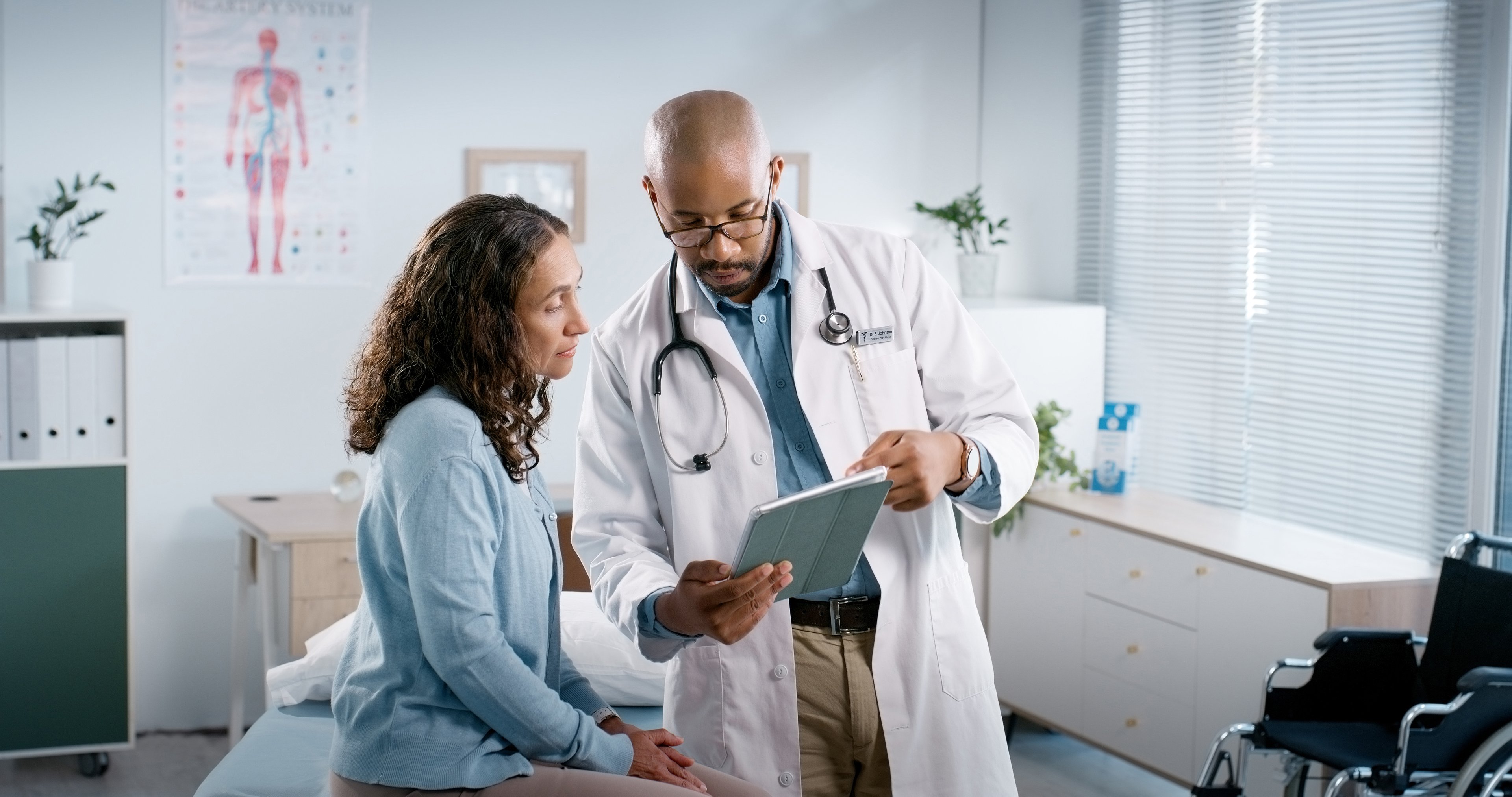Help is on the way.
In the midst of a societal upheaval resulting from the novel coronavirus and the disease that it causes, COVID-19, there are many efforts in progress to find solutions to slow the spread of the disease and treat those who already have it. These efforts include those from governments, nonprofit organizations, and companies both privately held and publicly traded.
To help investors who desire to keep tabs on the publicly traded companies with COVID-19 programs, here are lists of all the companies with market caps of at least $200 million that are developing or have developed COVID-19 vaccines, treatments, and tests.

Image source: Getty Images.
Vaccines
Several companies already had vaccine platforms targeting other coronaviruses such as MERS and SARS. This enabled them to rapidly prototype experimental vaccines for immunizing against the novel coronavirus that causes COVID-19. Following are all of the companies that are actively developing COVID-19 vaccines either on their own or in partnership with another drugmaker.
| Company |
Market Cap |
|---|---|
| Arcturus Therapeutics (ARCT 1.21%) | $249.1 million |
| BioNTech (BNTX 4.28%) | $12.2 billion |
| CSL Behring (CSLLY 1.40%) | $89.8 billion |
| Dynavax (DVAX +0.03%) | $293.9 million |
| GlaxoSmithKline (GSK +1.69%) | $93.7 billion |
| Inovio Pharmaceuticals (INO +4.29%) | $1.2 billion |
| Johnson & Johnson (JNJ +1.54%) | $357.9 billion |
| Moderna (MRNA 3.45%) | $11.4 billion |
| Novavax (NVAX 1.81%) | $821.8 million |
| Pfizer (PFE +0.87%) | $190.2 billion |
| Sanofi (SNY +0.62%) | $112.9 billion |
| TranslateBio (TBIO +0.00%) | $614.1 million |
Data sources: Biotechnology Innovation Organization, company press releases, Yahoo! Finance.
Two of these companies appear to be in the lead right now. In March, Moderna initiated the first clinical testing in humans of an experimental COVID-19 vaccine. The biotech's messenger RNA (mRNA) vaccine was developed in collaboration with the National Institute of Allergy and Infectious Diseases (NIAID). Inovio announced on April 6 that it had begun a phase 1 clinical study of experimental COVID-19 DNA vaccine INO-4800.
Treatments
Several companies already have approved products on the market that could hold potential in treating patients with COVID-19. Others have experimental drugs that have been included in testing for other viruses that could be effective in targeting novel coronavirus infection. Some are scrambling to develop new therapies for COVID-19. Following are the companies that are developing or testing potential COVID-19 therapies.
| Company |
Market Cap |
|---|---|
| AbbVie (ABBV +1.18%) | $113.7 billion |
| Adaptive Biotechnologies (ADPT 0.54%) | $3.4 billion |
| Alexion Pharmaceuticals (ALXN +0.00%) | $21.7 billion |
| Alnylam Pharmaceuticals (ALNY +0.26%) | $12.6 billion |
| Amgen (AMGN +0.82%) | $122.9 billion |
| Bayer (BAYRY +0.53%) | $60.2 billion |
| Biogen (BIIB 0.43%) | $54.1 billion |
| CSL Behring | $89.8 billion |
| CytoDyn (NASDAQOTH:CYDY) | $1.3 billion |
| Emergent BioSolutions (EBS +3.26%) | $3.1 billion |
| Gilead Sciences (GILD +0.65%) | $96.6 billion |
| Grifols (GRFS +1.73%) | $19.5 billion |
| Incyte (INCY +2.54%) | $18 billion |
| Eli Lilly (LLY +0.67%) | $135.8 billion |
| Mesoblast (MESO 0.35%) | $6.1 billion |
| Novartis (NVS +1.61%) | $193.1 billion |
| Regeneron Pharmaceuticals (REGN +1.83%) | $55.5 billion |
| Roche Holding (RHHBY +0.65%) | $286.7 billion |
| Sanofi | $112.9 billion |
| Takeda Pharmaceutical (TAK +1.42%) | $47.6 billion |
| Vanda Pharmaceuticals (VNDA +2.65%) | $568.7 million |
| Vir Biotechnology (VIR +3.63%) | $3.9 billion |
Data sources: Biotechnology Innovation Organization, company press releases, Yahoo! Finance.
Three drugs with the potential to treat COVID-19 have received the most public attention. Gilead's remdesivir, which was originally developed to treat the Ebola virus, is in late-stage clinical studies and could be the most promising treatment, according to World Health Organization Assistant Director-General Bruce Aylward. President Trump has spoken frequently about his view that anti-malaria drugs chloroquine and hydroxychloroquine, which are marketed by companies including Sanofi, could be effective in treating COVID-19, although health officials have stressed that the efficacy of the drugs in treating COVID-19 remains unproven at this point.
Testing
The most pressing immediate need in the battle against COVID-19 is for diagnostic tests to determine if individuals are infected by the novel coronavirus. Companies both large and small quickly developed such tests, with several receiving emergency use authorization (EUA) from the U.S. Food and Drug Administration (FDA) to be marketed commercially. Other companies have helped by providing COVID-19 testing services. Here are the companies engaged in activities related to testing for COVID-19.
| Company |
Market Cap |
|---|---|
| Abbott Labs (ABT +0.18%) | $142 billion |
| Bayer | $60.2 billion |
| Becton Dickinson (BDX 0.58%) | $63.2 billion |
| bioMerieux (BMXMF 8.42%) | $13.2 billion |
| Co-Diagnostics (CODX +1.76%) | $273 million |
| Danaher (DHR +2.14%) | $98.5 billion |
| Eli Lilly | $135.8 billion |
| Grifols | $19.5 billion |
| LabCorp (LH 0.45%) | $11.9 billion |
| OPKO Health (OPK +1.59%) | $817.2 million |
| Quest Diagnostics (DGX 1.19%) | $10.4 billion |
| Roche Holdings | $286.7 billion |
| Thermo Fisher Scientific (TMO +0.57%) | $117.7 billion |
Data sources: Biotechnology Innovation Organization, EvaluateMedTech, company press releases, Yahoo! Finance.
Roche and Thermo Fisher Scientific have committed to producing millions of COVID-19 tests. Abbott Labs recently launched the fastest COVID-19 test so far. Its test, which runs on the company's widely used ID NOW molecular diagnostics platform, can deliver positive results within five minutes and negative results within 13 minutes.
Investing considerations
Investors looking to buy shares of companies with COVID-19 programs should first determine how much risk they're willing to take. Several of the companies are relatively small. The odds of failure, especially with experimental COVID-19 vaccines and treatments, are relatively high.
It's also important to evaluate each stock's prospects beyond the companies' COVID-19 efforts. If you would be interested in buying a given stock even if it wasn't developing a COVID-19 vaccine, treatment, or test, that should put the stock much higher on your list.












































